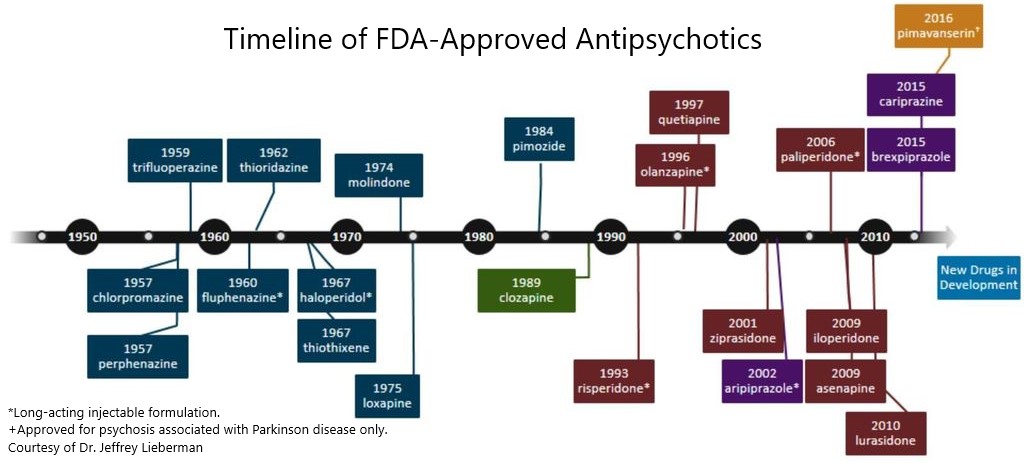The last two decades in particular have witnessed important advances in the treatment of mental health and brain disorders. Despite these advances, major unmet needs remain.
- Mental illness remains the leading cause of morbidity and mortality (Bloom et al., 2011; Collins et al., 2011; Insel, 2009).
- Psychiatric conditions account for five of the top ten causes of disability and premature death.
- Mental health conditions are the leading cause of Disability Adjusted Life Years accounting globally for 37% of healthy life years lost from Non-Communicable Diseases.
- The global cost for disorders of mental health in 2010 was $2.5 trillion and projected to markedly increase to $6.5 trillion in 2030, making mental illness the most costly form of chronic disease worldwide (Bloom et al., 2011).
- According to the National Institute of Mental Health, 51% of adults in the U.S. with bipolar disorder and 40% with schizophrenia were untreated during a one-year study period. For any mental illness, the statistics are even worse: Just 43% of people with mental illness received treatment in 2016.
The cost of untreated mental illness is high. Those costs are varied, too, including financial, public health, individual health, and social costs.
The public cost of untreated mental illness includes substance use disorders, overdose, suicide, and economic costs of healthcare and lost productivity. For individuals, these costs are experienced personally as broken relationships, poor performance at school or work, suicidal thoughts, substance abuse, and poor physical health.
- Patients hospitalized with serious mental illness are much more likely to be readmitted in the next 30 days if they do not receive follow-up treatment.
- The average hospital cost for a patient readmitted for a mood disorder is $7,100.
- Mental illness and substance abuse often co-occur, increasing the risk of death from overdose. There were 70,237 drug overdose deaths in the U.S. in 2017.
- The National Alliance on Mental Health estimates that untreated mental illness costs the country up to $300 billion every year due to losses in productivity.
- As many as 90 percent of cases of suicide are attributed to mental illness.


